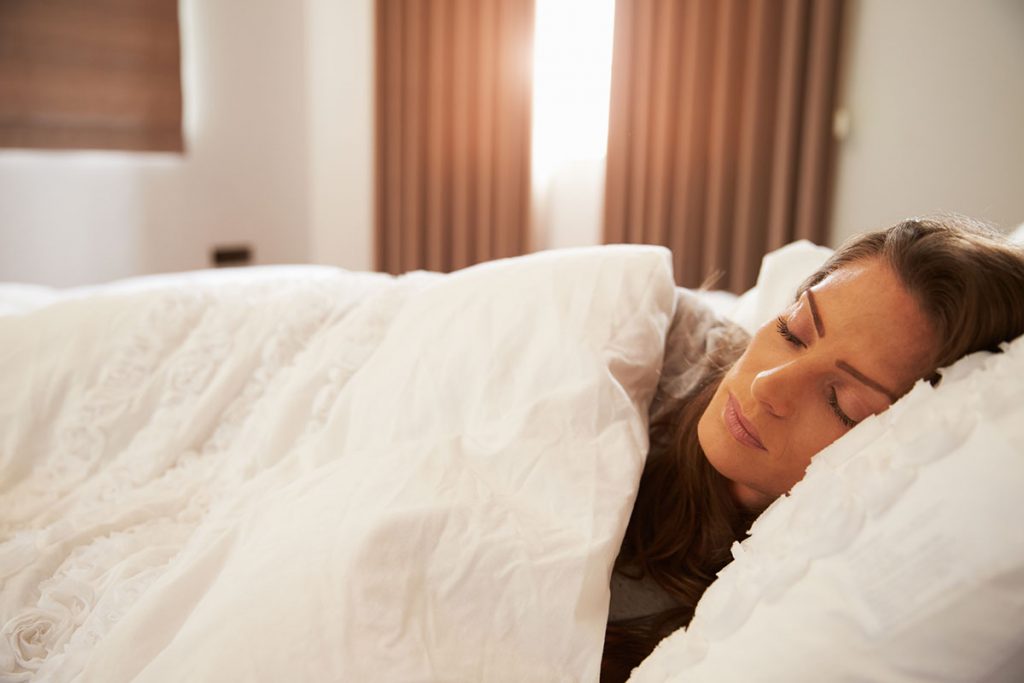
Articles
The Secret to a Happy Holiday: Create a Plan to Reduce Stress and Improve Sleep
There’s a reason you’re seeing more stories about the ways holiday stress impacts your health. While stress about COVID-19 has…
Introducing SleepScore
We deliver accurate data, actionable insights, personalized coaching and proven outcomes your customers need.
Sleep Insights
Last Published on 20th June 2017 by SleepScore Labs

June Gloom is in full effect, but never fear, summer is almost here. The smell of freshly cut grass, trips to the beach, and visits to the county fair are right around the corner. With summer also comes extended daylight hours. Moderate sun exposure has benefits, but prolonged daylight can mess with your shut-eye.
Darkness is essential to sleep, with the absence of light sending a critical signal to the body that it is time to rest. Light disrupts this process by delaying the release of melatonin, a hormone produced in the brain’s pineal gland. Often known as the “sleep hormone” or the “darkness hormone,” melatonin influences sleep by telling the brain it is time to hit the hay. In response, the body’s physiological preparations for sleep – muscle relaxation, feelings of drowsiness, decreased body temperature – are triggered. Melatonin level rise as darkness falls and continue to climb throughout the night. Peaking at approximately 3 a.m., melatonin levels then fall during early morning hours and remain low during much of the day. Evening light exposure inhibits this natural process, negatively impacting sleep.
In layman’s terms, too much light at the wrong time or insufficient darkness throughout the night can confuse and disrupt the body’s internal clock, interfering with both the quantity and quality of sleep.
Here are tips for ensuring better sleep during periods of prolonged daylight hours.
The best thing you can do to address the increase in daylight is practice every day good sleep habits – the best sleep tips work all year long. Follow our blog for new tips every month and sleep better tonight and every night!